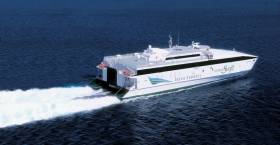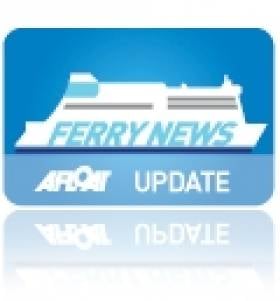Displaying items by tag: Swift
Storm Ewan Disrupts Sunday Ferry Sailings On Irish Sea
#StormEwan - Hot on the heels of last week’s Storm Doris, there is further ferry disruption today (Sunday 26 February) as Storm Ewan brings strong gusts to the East Coast.
Irish Ferries has cancelled its 8.45am and 2.30pm sailings from Dublin to Holyhead, as well as its 11.50am and 5.15pm return trips, all on the Swift, due to the adverse weather conditions forecast for the Irish Sea.
Met Éireann has issued a Status Orange national weather warning and gale warning as south to southwest winds are expected to reach Force 8-9 with storm force gusts on coasts from Malin Head to Carnsore Point to Valentia and on the Irish Sea.
Small craft are also warned as west to southwest winds will reach Force 6 or higher from Valentia to Slyne Head to Malin Head.
The most damaging gusts of up to 120kmh are expected along southern coasts, with a wind warning issued for Wexford, Cork, Kerry and Waterford until early this afternoon.
A Status Yellow warning is in place over mean wind speeds upwards of 50kmh and gusts of up to 110km in all other coastal and some Midlands counties in Leinster.
Expected Strong Winds Lead to Ferry Cancellations
Storm force winds are expected across the country later on this evening and into tomorrow.
Met Éireann has warned of gale to storm force winds tonight with speeds of up to 130km/h, strongest in the northwest.
Extremely high waves are expected on southwest, west and north coasts.
Irish Ferries has cancelled a number of its Swift sailings between Dublin and Holyhead because of forecasts for the Irish Sea.
P&O's scheduled sailings between Larne and Cairnryan this afternoon have been cancelled, as have this evening's sailings between Larne and Troon.

























































